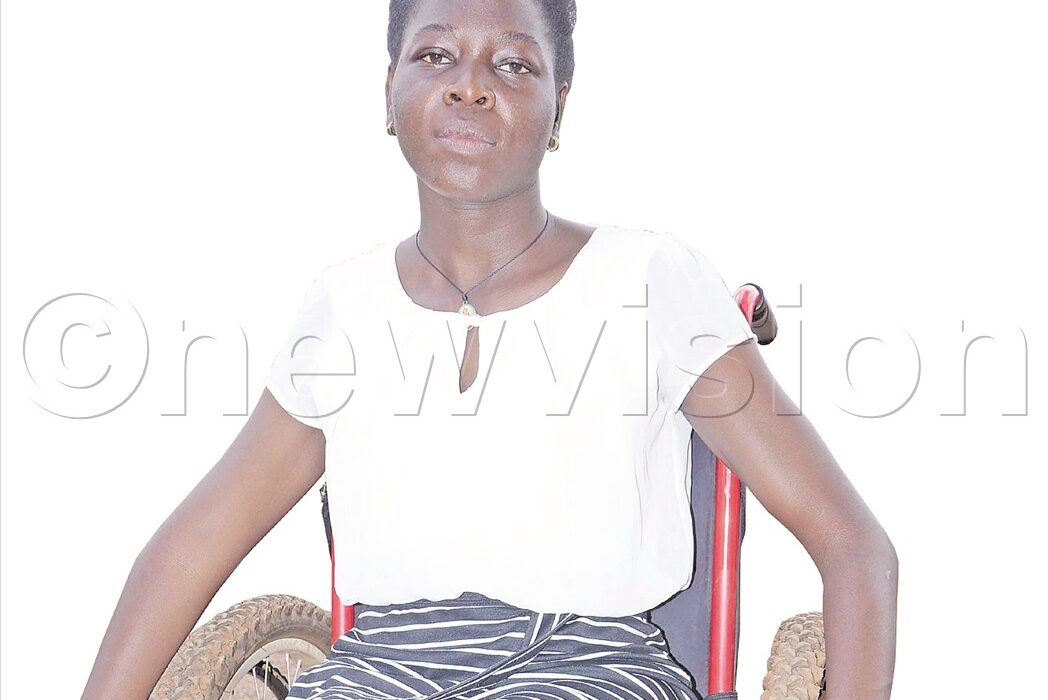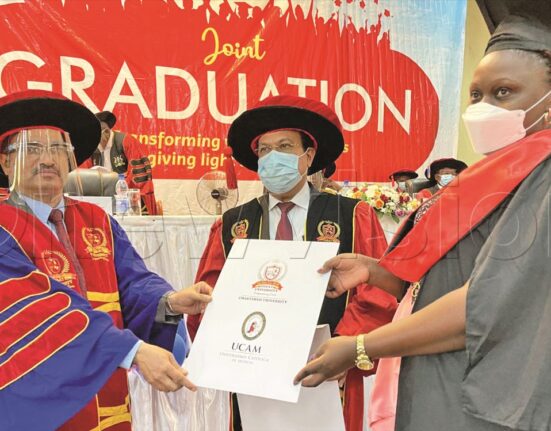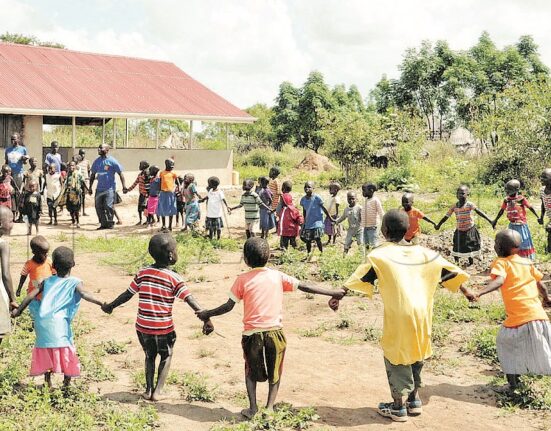(This article was first published in the New Vision on October 26, 2022)
By Melanie Nabukwasi and Mollan Joyce
Oliver Nabirye, a 22-year-old visually impaired student at Kyambogo University, was thrown into panic when she learnt that her caretaker had been taken ill and could not take her to class.
“It left a hole in my heart and many questions that were not answered,” Nabirye, a first-year bachelor of arts in education student, says.
Nabirye says she missed lessons as she prayed for her caretaker’s quick recovery, but never heard back from her caretaker gain. “My sponsor was informed and I received a new guide later.”
The special needs students in higher institutions of learning hire guides to take them to class and help them move around campus.
But state-sponsored students get slightly over sh800,000 as part of their funding to hire guides. Besides the trouble of hiring guides, special needs students deal with several other challenges on campus.
That is why Nabirye thinks there is a need for reforms to make tertiary institutions more accessible to people and friendly to learners living with disabilities.
“Universities could prioritise the training of guides on handling students with special needs. We still face discrimination,” she adds.
“Front seats could be reserved for us so we do not have to suffer the burden of looking for free seats in lecture rooms.”
Resource Centres
According to the education ministry only Kyambogo University runs a resource centre for students with special needs. The centre does not only offer students with disability the learning materials, such as braille, but also equips guides and lecturers with skills for dealing with the students.
Diana Musiime, who is Nabirye’s guide, says it takes “patience and selfl essness” to take care of students with disability, which is why training on how to deal with them is vital.
“I did not have any experience in handling students with special needs when I was asked to be Nabirye’s guide, but decided to do it. Nabirye is kind and smart,” she adds. “Whenever I am unable to guide her, Nabirye contacts the resource centre for assistance.”
Alex Ogwal, the chairperson of Makerere University Disabled Students Association (MUDSA), says they have requested the institution’s council to set up a similar resource centre to take care of their needs.
Ogwal, who is pursuing a bachelor of science in education, says such a resource could bridge the gap between the university and students, as well as provide training to other students and lecturers on handling learners with disability.
“The university should prioritise this because a resource centre would help lecturers with skills for handling us,” he adds.
Besides setting up the resource centre, Denis Tumusiime, a student with a hearing impairment at Makerere University, notes that the institution needs to retrofi t its old buildings with ramps to make them accessible to those with special needs.
A few buildings which were constructed recently at the university, including the two central teaching facilities, have ramps at entrances. Other buildings which have ramped entrances include structures in the school of dentistry, the Senate Building and the extension to the main library. The new buildings have also been fitted with toilets, which are accessible to students with disabilities.
Structural Adjustments
The Makerere University vice[1]chancellor, Prof. Barnabas Nawangwe, says there are plans to retrofit the old buildings to make them accessible to people with disabilities.
“We cherish the principle of inclusivity very much. We are not stopping at buildings. All our pedestrian sidewalks are also designed to facilitate access for people with disabilities,” he adds. “Ramps are created at every junction to facilitate easy movement of persons in wheelchairs.”
However, he does not mention when the old buildings which host lecture rooms and administrative offices, as well as halls of residence will be retrofitted. These do not only lack ramps, but elevators as well.
Tumusiime says he and others with disability might continue to face trouble accessing these structures.
“Living off campus involves many challenges for us like exposure to accidents while crossing roads. Yet it is hard for private students with special needs to find accommodation in the halls of residence,” he adds.
Any institution that admits a learner with a disability is expected to make structural adjustments to their buildings and premises to make them accessible to that learner within three months of admission, says the Persons with Disability Act 2019. The same law bars institutions from denying admission a learner on the basis of a disability.
Sam Ayeyo, a visually impaired undergraduate student of social work and social administration at Makerere University, says the Government ought to ensure all institutions have the requisite facilities and systems to implement inclusive education.
Inclusive Education

Justus Turamyomwe, a lecturer in the college of humanities and social sciences at Makerere University, says teaching a class comprising students with special needs and their peers who do not have disabilities, presents several challenges.
“Sometimes it is hard to find the best teaching method for two categories of students,” he adds. “A resource centre should be prioritised to give lecturers skills to handle children with disabilities.”
John Osillo, a lecturer, who doubles as an assistant records officer at Busitema University, agrees with Turamyomwe, saying: “Lectures need to be equipped with skills for teaching children with disabilities.”
Any institution that admits a learner with a disability is required to provide inclusive education, which means teaching learners with special needs together with other learners, according to the Persons with Disabilities Act 2019.
Tracy Abenakyo, an undergraduate student of accounting and finance at Kyambogo University, says it is important to make inclusive education meaningful at all levels since the number of learners with disabilities is not going down. “Everyone has a right to education but sadly many students with disabilities are not enjoying this,” she says.
Affirmative Action
Jackson Sanya, an officer in the education ministry’s special needs department, says the proposed National Inclusive Education Policy seeks to expand access to education for learners with disability.
He adds that the ministry is encouraging all universities to set up resource centres for students with disability to equip lectures with skills for handling learners with disability.
“Because Kyambogo University has this centre, all students doing a bachelor of education have a course unit for handling special needs students,” he adds.
Sanya adds that all institutions of learning are expected to make their buildings accessible to learners with special needs. He adds that the ministry has asked the executive to raise the number of state-sponsored learners with disability enrolled at each public university per year from 65 to 100.
A significant number of Ugandan children are disabled, but only a small number of them attend school (see graphics), according to the education ministry and World Bank. As shown by these figures, the number of children with disabilities drops by more than half at the secondary level. It drops further at the tertiary level.
While the Government’s affirmative action programme has allowed some special needs students to access tertiary education, Nabirye says with special needs, there is still a lot of work to do.









Leave feedback about this